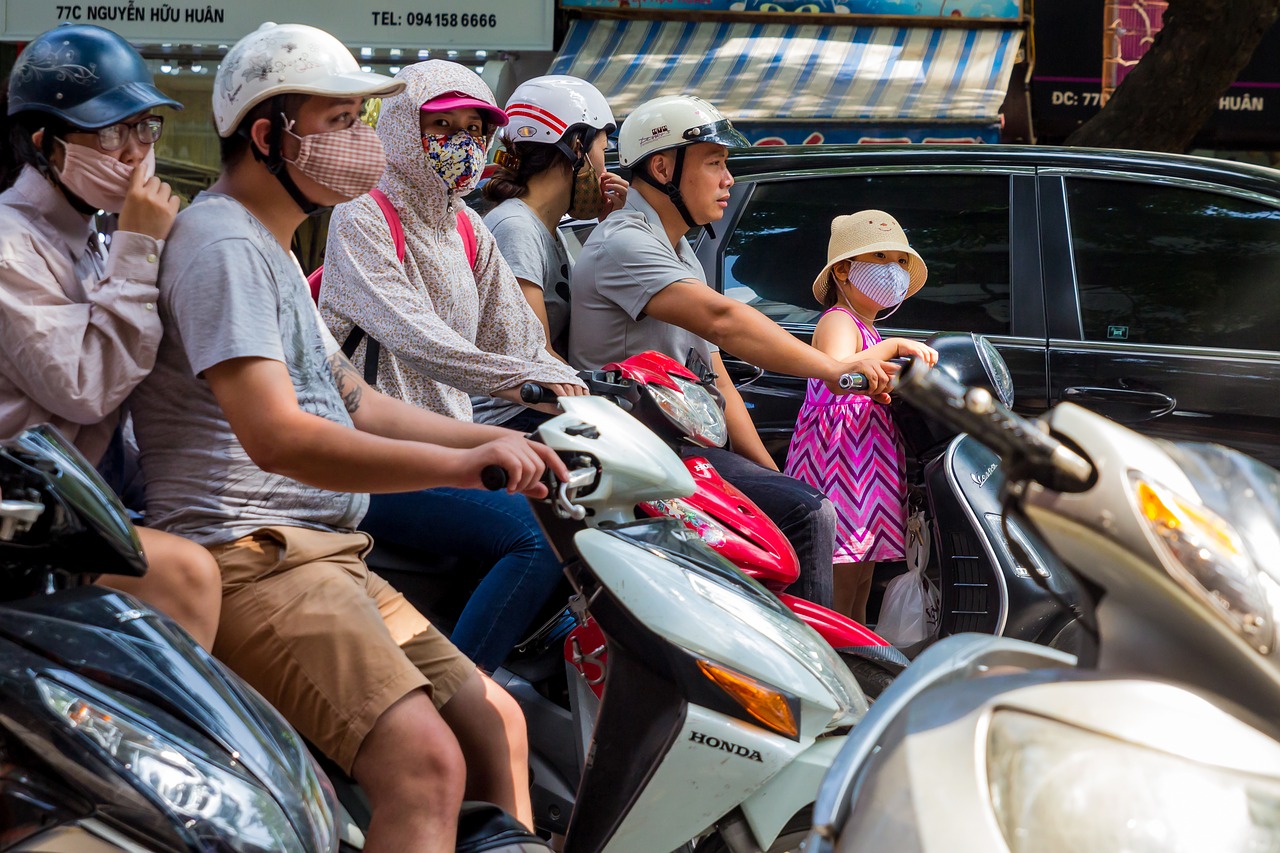

People are flocking to city centers all over the world, in search of better jobs in urban environments. For the people who design the roads and buildings in cities this requires significant planning. Without planning for the future, expensive mistakes can deter growth and have negative impact on housing, sanitation, education, and employment. Hanoi’s narrow streets and high tax on cars has led to an increased number of motorbike owners. This has recently led to pollution becoming dangerous to people’s health.
Emissions of all types are found in Hanoi’s air, including fine particles which lead to a large number of deaths per year. Particles (PM) as small as 2.5 micrometers lodge deep in our lungs, clogging arteries, making it harder to breathe. This irreversible effect is the reason scientists have been studying how safe it is to live in such an environment. PM10 particles are larger, and are usually in the form of dust. Blocking PM10 particles is easier than PM2.5 particles, and can be done with a simple cloth mask. Those masks however don’t block all the other particles or gasses.
There are more and more reasons coming to light that show how a city can become unhealthy.
• More people = more traffic.
• More electricity demand = more electricity production (usually without regulation, in the form of power plants).
• Smoking and cooking indoors = highly concentrated PM2.5 particles in indoor environments.
• Burning crops (called stubble burning) to make way for a new planting season = CO2 filled environment.
• Factory emissions and runoff = polluted water bodies and trash dumps.
• Dusty roads = increased dust in the air.
• Unregulated vehicles = filthy exhaust fumes in the air.
Looking at the history of the countries that now claim to have high air quality, we can see that developed countries like the U.S. went through similar pollution effects and had to fix them by developing specific regulations.
Here are some ways that we hope will slowly reduce the reasons a city is overly polluted.
• Efficient public transport solutions and use of bicycles and electric vehicles.
• Reaping the power from the sun, wind, and water.
• Regulations put in place to stop smoking indoors, and zero emission cooking stoves. Less use of Coal!
• Regulations against burning crops or stubble. As well as education of composting old crops.
• Removing factories using methods that pollute, and instead investing in factories that are able to use technology to eradicate emissions (like in the EU).
• Investment in road infrastructure and proper sidewalks, with runoff systems and sewers to deal with dust.
• Regulate vehicles to meet higher standards, and reduce poor fuel quality.
Although none of these suggestions can come into effect immediately, doing so would decrease emissions in the future. The majority of us care about our earth’s environment, but many who are not educated enough act like they don’t care. It occurs far too often that people copy those around them, following like a herd of sheep. “If they throw their trash on the ground, why shouldn’t I?”
We’re looking forward to hearing your ideas and suggestions on some of these issues.
What can each of us do to reduce the negative effects of pollution?
